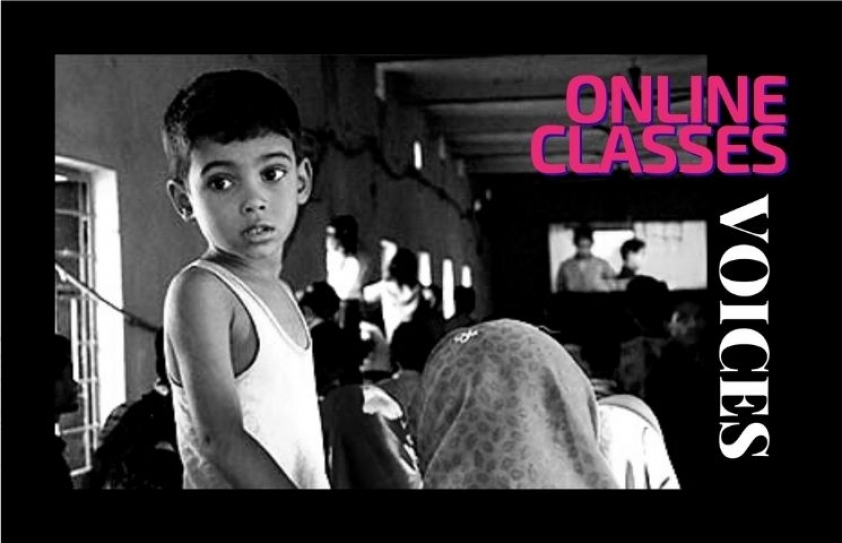
Online Classes: Boon or bane
by Monarose Sheila Pereira October 4 2020, 4:00 pm Estimated Reading Time: 5 mins, 45 secsEducationists and students talk to Monarose Sheila Pereira and discuss the pros and cons of online education.
The lockdown has made it mandatory for educational institutes to conduct their classes online - over to the voices of those teachers and students who’re dealing with this ‘new normal’ these days.
3.jpg)
Principal, St Xavier's College (Autonomous)
The Theme for the academic year 2020-21 is 'Adaptive Education'. It’s been approximately two months for our online teaching of UG and PG classes at Xavier's. It has been a challenging task for our faculty. The Tech-savvy members have picked up very fast, others have followed them. Many young faculties did help their seniors. There has been a wonderful response from students too. They have accepted these new norms. Initially, both, teachers and students took time to adapt, adjust and learn new netiquettes. The benefit of online classes is, we found, that the attendance of students is almost 100%. It has also given us an opportunity to go global'. We have many online guests lectures by International experts. Of course, we do have issues. Many of us are missing the 'human touch' and Interaction in online teaching. We have tried to take minimum required lectures as per the University norms and therefore, we are unable to give them the special exposure like Social Involvement Program, Malhar and many more for which we are known. Virtual practical are the area of great concern. They are missing 'hands-on training' in the lab. We are all waiting to see our students as and when we resort to our traditional teaching methods.
3.jpg)
Student, R. D. National College
Online classes, or as they call it, the new normal, have become the best available option that our education relies on in these times. As a late riser, I am having the best time, waking up just 1/2 hour before the lecture and attending it in the comfort of my home, in my PJs.
However, there are a few cons like your everyday household disturbances, Internet connectivity issues and even the availability of laptops/mobiles for some students. Although nothing compares to meeting friends in the college campus and the feel of a personal, physical classroom; we are in this together and will help make the most of it.
4.jpg)
Visiting professor
Online teaching has brought about a significant change in the world of teaching. For students and teachers, both have come to a platform that demands continuous updates and creativity. For BAMMC, a media concentrated course, digital has now become convenient to show media content as examples. There’s an improvement in attendance and overall interaction. We’re grateful for the chat-box option in almost all the online teaching platforms where students who never spoke in class or were shy to interact, have started interacting. It’s a new space with a promising growth level.
4.jpg)
Student, Rizvi College
COVID-19 has disrupted the academic year, cancelled lectures and postponed the examinations. But it has opened new ways of teaching and learning from actual classroom to virtual classroom. Keeping class online may prevent students from coronavirus but it will have many health effects also. Watching the screen for hours can lead to eye problems and many behavioral problems too. Shifting classes online makes students feel lonely, they don't have their mates with them nor the study environment. Many government schools do not have access to digital systems; so the students will miss out classes.
Some families have digital access but what about people below poverty line who do not have Internet or high quality smartphones with 3/4 GB rams.
Students living in rural areas do not have proper network; they also want to study. A class 11 student from Theni district in Tamil Nadu died by suicide after failing to cope with the pressure of online lessons. Vikrapandi, the deceased student, was facing problems in following online lessons from home. He was studying in a school in Trichy but returned home after the lockdown. Ever since online lessons began, Vikrapandi told his family that he was struggling with online classes and that it was difficult to understand lessons. The new normal is not acceptable to everyone nor can it benefit students for a long time.
3.jpg)
Principal, St Stanislaus High School
In the present condition caused by the pandemic, with teachers and students isolated and physically distanced, online instruction fills the gap. It may not be filled completely but it is surely doing so adequately. Everybody talks about the digital divide and this is definitely true in rural India. But with government support there could be a solution. Speaking personally for my school, online teaching has helped us to remain connected with our students and has made sure that learning losses have been prevented. The online medium has also increased our knowledge and use of technology especially among educators and students, which can never be undermined, as we move forward in this digital age.
5.jpg)
Head Dept. of Psychology, St. Xavier’s College
When we were first introduced to the use of ZOOM in April 2020 and were told to familiarize ourselves with the technology for online classes, it seemed like something that might be good for webinars but not really for regular lectures. Since then, we have had all kinds of training, practice and collaborations to use Learning Management Systems effectively and to conduct our synchronous classes in an engaging manner using online platforms. We definitely miss the live classroom face-to-face encounters and interactions with students and we have had to devise different methodologies for some of our class exercises, lab practical and formats of assessments.
Uploading materials and classwork in Google classroom as well as sharing links to relevant audiovisuals has become more organized. As long as students use the specified format for email IDs, attendance reports in Zoom are also easily collated. Of course, the Internet strength and speed for both students and teachers needs to be strong enough to support the increased requirements for all activities (curricular, co-curricular and extracurricular) and all members in a household who need access to their devices at a specified time.
However, let us also acknowledge that the objective of education is not merely delivery of academic content. The whole experience of college life, both in and out of the classroom, is important for all round development of the student. There is also an increase in stress due to the increased screen time (and a decrease in stress that came from commuting to college and back).
For the teacher, ‘work from home’ is not easy but is essential in this ‘new normal’. Hats off to all those educators who have reinvented themselves and their profession and found creative ways of engaging students with whatever limited resources they have access to. We have learnt about adapting - now we are evolving. We have learnt about surviving, now we are thriving.




-173X130.jpg)
-173X130.jpg)
-173X130.jpg)

-173X130.jpg)
-173X130.jpg)

